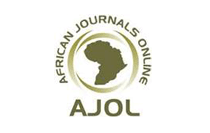Mansoura Veterinary Medical Journal
Document Type
Original Article
Keywords
Fluconazole, Rabbits, Teratology, Fetal abnormalities
Abstract
bjective: ThisThe current study aimedwas designed to assess the teratogenic effect of fluconazole on developing rabbits’ foeti.
Design: Randomized controlled study.
Animals: Twenty-four sexually mature females and two2 adult males New Zealand white rabbits (, 5–- 6 months old, weighing 3-4 kg, were used in this study. The Mmature males were used for mating. process
Procedure: The Ppregnant female rabbits (n = 24) were allotted into four4 groups (6 rabbits/ group). The cControl group (G1) was administered normal saline. Other groups were administeredgiven fluconazole orally at a dose of 80 mg/kg once daily for ten days either ion the first trimester (G2), the second trimester (G3), or the third trimester (G4) of gestation period. Three dams were sacrificed from eachevery group (n=3) were sacrificed on the 20th and 30th days of gestation. The influence of fluconazole on the developing foeti was investigated grossly and histopathologically.
Results: Administration of fluconazole during gestation caused significant reductions (P < 0.05) in the mean values of viable foeti, fetal body weight, and crown-rump length, and significant elevation (P < 0.05) in the mean values of dead foeti, fetal resorption rate, pre- and post-implantation death. Additionally, visceral fetal abnormalities, were noticed including; thickened ventricles of the heart, and dilated lateral ventricles of the brain, were observed. Moreover, fluconazole induced skeletal anomalies in the developing foeti, shown as indicated by the absence of the last rib.
Conclusion and clinical relevance: The Pprescription of fluconazole must be prevented during pregnancy to avoid fetal malformations.
How to Cite This Article
Ismael, Sally I.; Amer, Magdy S.; Gad, Gehan N.; El-Galil, Rasha A.; and Elazab, Sara T.
(2023)
"Teratogenic effect of fluconazole on rabbit’s foeti,"
Mansoura Veterinary Medical Journal: Vol. 24:
Iss.
4, Article 12.
DOI: https://doi.org/10.35943/2682-2512.1220
Receive Date
1 July 2022
Accept Date
19 December 2022
Publication Date
2023






